- Home
- Catherine Jinks
The Dark Mountain
The Dark Mountain Read online
Catherine Jinks is the author of many children’s and YA books as well as several novels for adults. She has been writing for over fourteen years and enjoys commercial and critical success across a wide range of genres and age groups. critical success across a wide range of genres and age groups. The Dark Mountain is her ninth novel for adults. Catherine lives in the Blue Mountains of New South Wales with her husband and daughter.
www.catherinejinks.com
To Kim Johnston
With gratitude
The
DARK
MOUNTAIN
WHAT KIND OF SECRET IS WORTH
A LIFETIME OF BETRAYALS?
CATHERINE
JINKS
First published in 2008
Copyright © Catherine Jinks 2008
All rights reserved. No part of this book may be reproduced or transmitted in any form or by any means, electronic or mechanical, including photocopying, recording or by any information storage and retrieval system, without prior permission in writing from the publisher. The Australian Copyright Act 1968 (the Act) allows a maximum of one chapter or 10 per cent of this book, whichever is the greater, to be photocopied by any educational institution for its educational purposes provided that the educational institution (or body that administers it) has given a remuneration notice to Copyright Agency Limited (CAL) under the Act.
Allen & Unwin
83 Alexander Street
Crows Nest NSW 2065
Australia
Phone: (61 2) 8425 0100
Fax: (61 2) 9906 2218
Email: [email protected]
Web: www.allenandunwin.com
National Library of Australia
Cataloguing-in-Publication entry:
Jinks, Catherine, 1963-
The dark mountain / author, Catherine Jinks.
ISBN: 978 1 74114 995 1 (pbk.)
A823.3
Set in 13/16 pt Adobe Jenson Pro by Bookhouse, Sydney Printed and bound in Australia by Griffin Press
10 9 8 7 6 5 4 3 2 1
Table of Contents
Acknowledgements
August 7th, 1905
One: 1836
Two
Three
Four
Five
Six: An Interlude
Seven
Eight
Nine
Ten
Eleven: An Interlude
Twelve: 1838
Thirteen
Fourteen
Fifteen
Sixteen
Seventeen: An Interlude
Eighteen: 1839
Nineteen
Twenty
Twenty - one
Twenty - Two: An Interlude
Twenty - Three: 1842
Twenty - Four
Twenty - Five
Twenty - Six: An Interlude
Twenty - Seven: 1844
Twenty - Eight
Twenty - Nine
Thirty
Thirty - One: An Interlude
Thirty - Two: 1846
Thirty - Three
Thirty - Four
Thirty - Five
Thirty - Six: An Interlude
Thirty - Seven: 1847
Thirty - Eight
Thirty - Nine
Forty
December 16th, 1905
Extract
Oh! The light from the mountain is fading away And the shadows creep over it chilly and grey, I see the dark rocks in their sternness and pride, But the flowers are hidden that grow by their side. The tall trees are tossing their wild arms on high As the shriek of the curlew goes mournfully by, The cold night is coming it will not delay. For the light from the mountain is fading away . . .
Louisa Atkinson Calvert, c. 1850
Acknowledgements
Kim Johnston first introduced me to Oldbury, and without her this book would never have been written. However, I also wish to thank Linda Emery, of Exeter, New South Wales, for her invaluable help, as well as the staff of the Orange Public Library.
My main source of written information was Patricia Clarke’s Pioneer Writer: The Life of Louisa Atkinson. Linda Emery’s Tales from a Churchyard and James Jervis’s A History of the Berrima District were also crucial texts.
It was my intention to write a novel in which nothing could be disproved. Nevertheless, there were many gaps that had to be filled, and I filled them using my imagination. If I have overlooked or misinterpreted anything, I should very much like to hear about it. Because this is a story that deserves to be told in full.
August 7th, 1905
Dear Aunt Charlotte,
I do hope that you are not offended by my addressing you in this familiar way, but I am quite convinced that you are my mother’s eldest sister, and consequently, my aunt. Having read your letter in last week’s Evening News, I know that it must be so. You named your father as one James Atkinson, senior, of Oldbury, Sutton Forest. It happens that my mother, Mrs Louisa Calvert, was James Atkinson’s youngest daughter.
I never knew my mother. As you are no doubt aware, she passed away two weeks after I was born. When my father followed her I was only twelve, and although your brother, Mr James Atkinson the younger, invited me into his home at Oldbury for a short time, he too died before I reached my fourteenth birthday. At that age I was too young to be taken into the confidence of my elders, and am therefore not well acquainted with the events that unhappily severed the connection between your branch of the family and mine. But I have long deplored this sad estrangement, and would very much like to mend the breach.
The fact that you were writing from Orange startled me, for I lived there myself not long ago. Have you recently arrived in town? Or can it be that we used to pass each other on the street, all unknowing?
I am also puzzled by one portion of your letter, in which you described the notorious convict John Lynch as having escaped from Cockatoo Island after his arrest for the murder of a fellow convict, Ned Smith, at Oldbury. Your brother’s widow once related to me an account of this affair, and it was her recollection that John Lynch was actually acquitted of the murder, owing to the drunkenness of the chief witness against him—a certain George Barton, Oldbury’s overseer. Can this be true? I must concede that my aunt was not, perhaps, the most reliable informant, having previously suffered a severe stroke. No doubt it affected her memory.
Please forgive my blunt approach, which I trust is not unwelcome. If there has been any delay in the delivery of this letter, you may blame me entirely; the Evening News mentioned only that you were Charlotte E. McNeilly of Byng Street, Orange, so I was forced to use an incomplete address.
I remain most respectfully yours,
(Mrs) Louise S.A. Cosh
I am found out. Mrs Louise S.A. Cosh has caught me in a lie, and now I must confess to it—or even worse, admit to being mistaken. I should never have written that letter. I certainly should not have posted it. As always, my pride has been my downfall.
Whatever shall I do?
My intentions were good. It was for Edwin’s sake that I wrote the letter, for he is taken entirely too much for granted, in my opinion. He is as much the town’s son as he is mine, striving ceaselessly for its betterment, yet there is a certain attitude that I have noticed among various gentlemen hereabouts—a certain benevolence which I find hard to stomach. ‘Good old Ted’, they say, as if he deserves no higher compliment. I felt constrained to remind them that, although his father worked as a carrier and his sister married a blacksmith, Alderman Edwin Thomas McNeilly is directly descended from one of this country’s finest pioneers.
How many people know, for example, that my late father, James Atkinson, was a founding member of the Agricultural Society of New South Wales? Or that
he was the first to venture into the unexplored gorges of the Shoalhaven? Or that he wrote that well-regarded study, An Account of the State of Agriculture and Grazing in New South Wales, which, when published in London, attracted many highly respectable settlers to this country in its earliest days?
When I consider Edwin’s civic pride, and his charitable kindness, and his untiring labour on behalf of his fellow man, I am reminded very much of his grandfather. If not for the misfortunes that have blighted this family, I truly believe that Edwin’s name—like my father’s—would now be widely known in far more exalted circles. I truly believe that Edwin would have risen to even higher ranks of government, and accomplished greater things. ‘Blood will out’, as the saying goes. Why—only see how promising my grandchildren are! Look at Flora’s boy, Hubert: how well he conducted himself in the war! And darling George, though barely two, is already speaking quite clearly.
But here I am, a doting fool, letting my pride rule my pen again. With the result that I am now exposed to the prying attentions of Mrs Louise S.A. Cosh, who seems to share her mother’s penetrating eye for detail. What shall I say to Mrs Cosh? That the past should not be dissected like one of my sister’s freshly killed specimens? That there are shadowy places in the history of this bloodline that will not bear close examination? Or should I simply remain silent, as I did before?
The fact is, I was not ‘all unknowing’ when I passed Mrs Cosh in the street. She was Miss Calvert at that time, of course. (She must have married since, and not in Orange either.) But back then—it would have been ten years ago, at least—I saw her often enough buying worsted at Dalton’s, or visiting the Post Office. I shall never forget my first glimpse of her, on the footpath outside the Davis Bros. Furnishing Arcade. Mrs Dunstan was with me; she took my arm, and was very concerned.
‘Why, Mrs McNeilly,’ she said, ‘are you ill?’
I was, for an instant. I thought that I should faint, because I had seen an apparition: I had seen my sister, or so I believed, though she had been dead for all of twenty years. I had seen her slight figure and her dark curls—even her large, clear eyes and heavy chin. As she passed from my sight into the depths of the Drapery Department, I said to Ms Dunstan: ‘Who—who was that lady?’
‘Which lady?’
‘The lady who just crossed our path. The very young lady in green, with dark hair.’
‘Oh!’ Mrs Dunstan seemed confused, but not for want of information. ‘I think you mean Miss Calvert?’
‘Miss Calvert?’
‘Mr Richards pointed her out to me, yesterday. She is the new children’s nurse at his school.’
‘How very—how very interesting,’ I said, through trembling lips. ‘Miss Calvert? I thought I knew her, but I was mistaken.’
‘Such a nice-looking young lady,’ Mrs Dunstan added, in a tone of slight concern. ‘It hardly seems right that she should have studied to be a nurse, does it?’
I later discovered that Miss Calvert had in fact studied at the Royal Prince Alfred Hospital in Sydney. This titbit, however, did not come directly from Miss Calvert herself. It was gossip that circulated throughout the town, as gossip always does at the arrival of a new face. I myself was never formally introduced to Miss Calvert. The truth is, I took care to avoid her. It was fortunate that Edwin, in marrying Annie, had adopted the Methodist form of worship, because Miss Calvert forced me to abandon Holy Trinity when she joined its congregation. I caught a glimpse of her one Sunday in the back pews, and had no wish to find myself chatting with her on the porch, or over tea at the rectory. So I threw in my lot with Edwin—much to Annie’s delight—and suffered no pangs of conscience as a result. Why should I have? ‘Temperance’ has always been the Methodist rallying cry, and I hold very firm views on abstinence myself.
Besides which, I have no patience with this precious emphasis on religious forms, which seems quite out of place in the modern world. As my sister Louisa once wrote, ‘If those forms be not in opposition or perversion of His Revealed Law, they are nothing, only servants to assist and prevent confusion in our devotions.’ Wise words from the Oracle. Do you know, I believe that I might even have inspired them? For I do recall speaking very passionately on the subject, years and years ago. ‘True religion is the worshipping of God in spirit, not in forms!’ was my plaintive cry.
A young girl will say absolutely anything, when she is in love.
Be that as it may, however, I deserted the Reverend Dunstan’s congregation for my own tranquillity of mind. And yet what tranquillity can there be for one such as myself? I could never be at ease—not while Miss Calvert was in town. And then, on one memorable occasion, Edwin himself finally spoke to her. It was a few months after the birth of James Atkinson McNeilly, whose name was chosen solely to please me, I am sure. Edwin was parading down Summer Street with his bonnie new son, fending off the boy’s many admirers, when he was stopped by Miss Louise Calvert.
I am grateful that I was not present to witness this encounter. If I had been, I should certainly have died of an apoplectic fit. As it was, I only heard about it when Edwin returned home. He came into the sitting room, where I was smocking a little jacket, and surrendered James to his mother.
‘Wet through,’ he declared. ‘At both ends.’ Then he threw himself into his leather-cushioned chair, as Annie whisked her damp, wailing bundle out of the room. ‘You will go blind, Mother—you should light a lamp,’ he said.
‘At this hour?’
‘I saw Frank Mulholland outside Plowman’s.’ (Every word is seared into my memory.) ‘He seems well again.’
‘Good.’
‘James tried to steal his fob. I swear, that child was born to be hanged—though he seems very popular with the ladies.’ Edwin reached for the latest Western Advocate, which was sitting on top of Annie’s workbox. ‘Did you know that Richards has bought the Wolaroi Mansion?’ he continued. ‘I did not.’
‘To live in?’ I inquired, astonished.
‘For his school. He must be doing well with it, don’t you think? I had the news from one of his staff—the children’s nurse, Miss Calvert. She was with Mrs Dunstan, and stopped to lavish praise upon His Royal Highness. A very nice young lady, I thought. Mother? Is something wrong?’
‘No. No, not at all.’ How unconvincing I must have sounded! ‘Did you—did you mention his name?’
‘Whose name?’ Edwin frowned. ‘Jimmy’s?’
‘His full name. Did you mention it?’
‘Why, no.’ By this time Edwin was clearly puzzled. ‘Should I have?’
‘By no means.’ I think I may have laughed, then. ‘Just a silly fancy! Of no real consequence. You mustn’t mind me . . .’
‘Are you all right, Mother?’
‘Perfectly. Thank you.’ Seeing his fair, guileless face all creased in concern, I was smitten by the most terrible pangs of guilt. It seemed so wrong that he should be kept in ignorance—that he and his cousin, each as innocent as the dawn, should be passing each other like strangers. For one moment I was tempted to speak. I actually opened my mouth. But then it occurred to me: what should I say? How could I possibly narrate, in a few simple words, all the misery and passion and deceit that brought me here, to this place? How could I possibly unpick the dense and matted fabric of my life, with little James whimpering in the next room, and a pudding on the boil nearby? I do not believe that Edwin has ever beheld such murky depths as the ones that haunt me. He has grown up buoyant and sunny, skimming the bright surface of the world like a kingfisher. He knows nothing of what lies beneath. Nothing.
How could he even begin to comprehend?
So I closed my mouth and was silent. Until now. Or rather, until I took up my pen and wrote to the Evening News, like a fool. I have opened Pandora’s box. I have unlocked the family vault. It therefore behoves me to explain, as best I can, why Edwin McNeilly and Louise Calvert had to meet as strangers, so many years ago.
For their sakes, and for the benefit of all my descendants hereafter, I offer up a
true account, with nothing omitted, of the ruin occasioned by one event that took place on the thirtieth of January, 1836, in the Belanglo Forest of New South Wales.
Be ye merciful, as your Father also is merciful.
One
1836
The day itself was hot and sultry. A late storm threatened in the slow gathering of dark clouds to the north, but from sunrise it was evident that there would be no early relief. I remember so clearly every passing minute of that day, though all the days before it seem a golden blur, with here and there a break in the mist: the vivid image of a forty-pound turnip, displayed in the milking yard and encircled by exultant men; my newly christened brother, a mass of lace, cradled in my father’s arms; a pink cockatoo trapped in the nursery, flapping from corner to corner, its drifting feathers later retrieved from inside the grate. Even my father’s death seems to have cast no great shadow—not one, at least, that I can discern from this distance—though I know (for I was told) that it was terrible and protracted; that he was deprived of all his faculties by the fever and the pain; and that Louisa’s crying tormented him so much that she was removed from his presence. Perhaps the rest of us were, also: I cannot tell. I recall nothing of his deathbed. Nothing of his rapid decline. My memories of my father are in every instance suffused with happiness, for he was a good man, kind and just, as all who dealt with him are pleased to testify.
There was at least one neighbouring family which owed its complete happiness to my father. Long before I was born, it was Papa who noted the anguish of his convict servant, John Hollands. It was Papa who arranged that John’s wife Mary and their five children should be brought from England to New South Wales. Through my father’s patronage, Mary Hollands received a grant of land in Sutton Forest, and her husband was assigned to her. Thus was the family reunited, to my father’s eternal glory. In this, as in every other facet of his life, he displayed the generosity of spirit, the radiant common sense and the patient determination that earned him the general respect of the colony.

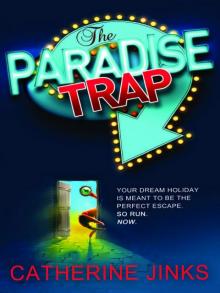 The Paradise Trap
The Paradise Trap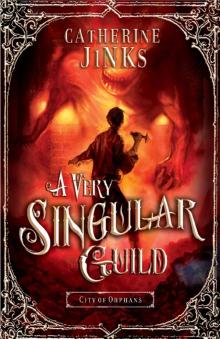 A Very Singular Guild
A Very Singular Guild Eloise
Eloise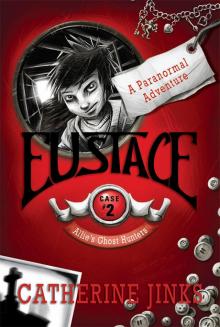 Eustace
Eustace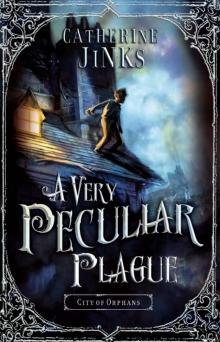 A Very Peculiar Plague
A Very Peculiar Plague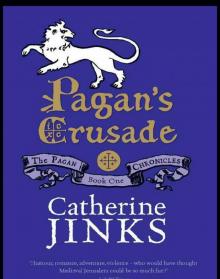 Pagan's Crusade
Pagan's Crusade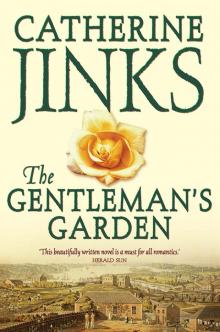 The Gentleman's Garden
The Gentleman's Garden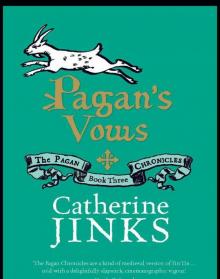 Pagan's Vows
Pagan's Vows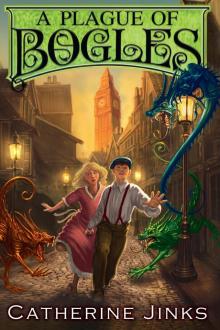 A Plague of Bogles
A Plague of Bogles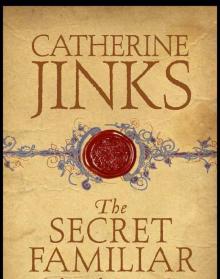 The Secret Familiar
The Secret Familiar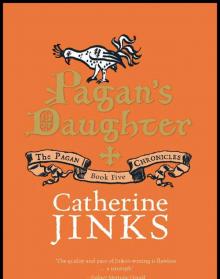 Pagan's Daughter
Pagan's Daughter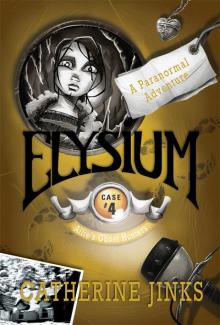 Elysium
Elysium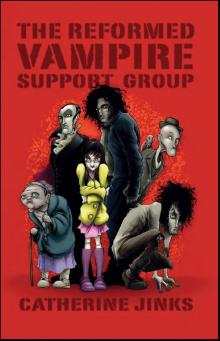 The Reformed Vampire Support Group
The Reformed Vampire Support Group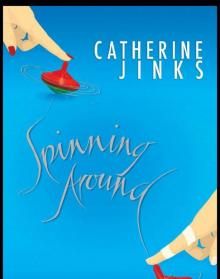 Spinning Around
Spinning Around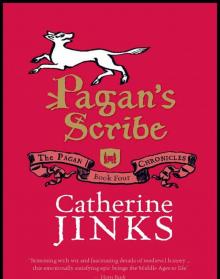 Pagan's Scribe
Pagan's Scribe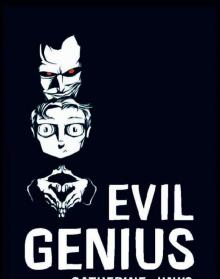 Evil Genius
Evil Genius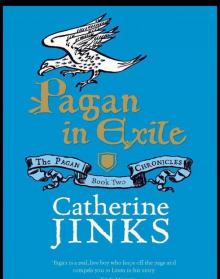 Pagan in Exile
Pagan in Exile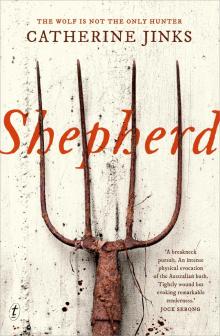 Shepherd
Shepherd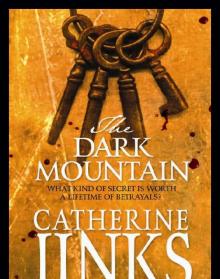 The Dark Mountain
The Dark Mountain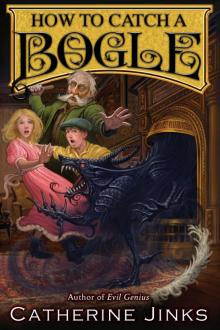 How to Catch a Bogle
How to Catch a Bogle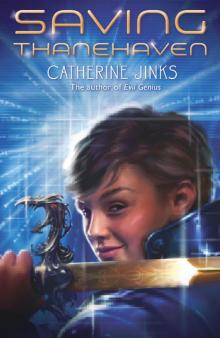 Saving Thanehaven
Saving Thanehaven The Genius Wars
The Genius Wars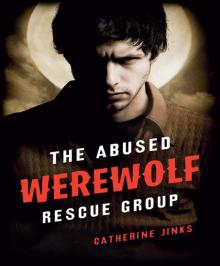 The Abused Werewolf Rescue Group
The Abused Werewolf Rescue Group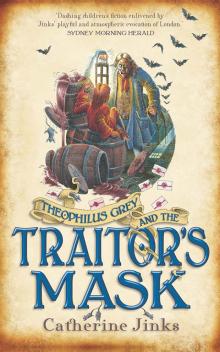 Theophilus Grey and the Traitor's Mask
Theophilus Grey and the Traitor's Mask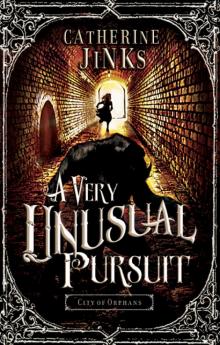 A Very Unusual Pursuit
A Very Unusual Pursuit Genius Squad
Genius Squad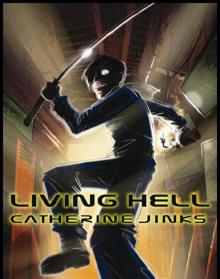 Living Hell
Living Hell The Road
The Road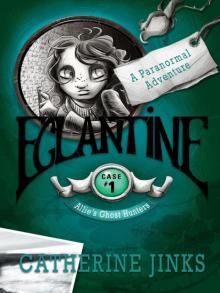 Eglantine
Eglantine